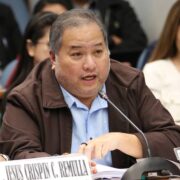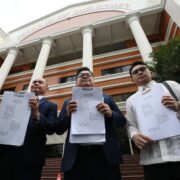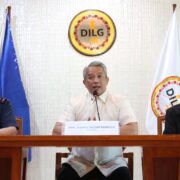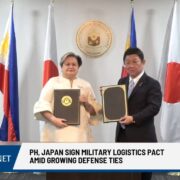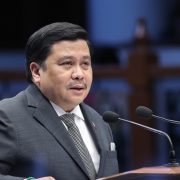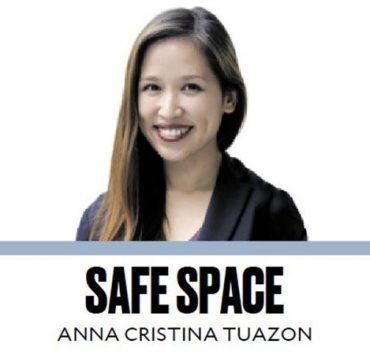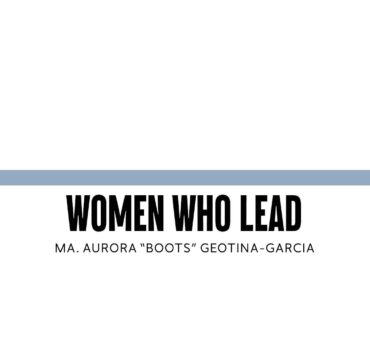Filipinos and the Iran-Israel conflict

In a world already burdened by inflation, climate emergencies, and political instability, the specter of war looms large once again—this time between Israel and Iran. To many Filipinos, this conflict may seem distant, buried beneath local struggles like rising rice prices and the messy politics of charter change. But to dismiss this as irrelevant is to overlook how deeply interconnected our world has become—and how geopolitics abroad can bring real and painful consequences at home.
We may be 8,000 kilometers away, but no Filipino is untouched by the tremors of international war. From the price of oil to the safety of overseas Filipino workers to the shifting alliances shaping our diplomacy, what happens between Israel and Iran matters—urgently and morally.
The recent surge in hostilities—marked by drone attacks and missile strikes—risks turning a cold war into a catastrophic hot one. With the United States, Russia, and China circling the conflict, this is no longer just a regional concern. It is a global flashpoint.
Global conflicts are never just “their” problem. In our interconnected world, migration, trade, and labor flows bind us together. Over 2.2 million Filipinos live and work in the Middle East—many in Israel, Iran, and neighboring Gulf states. These countries are not just names in the news; they are where our nurses, caregivers, and engineers live, earn, and dream.
When tensions escalated last April, Filipino caregivers in Tel Aviv were told to take shelter. Many were trapped in basements, scrolling through news feeds, frightened and far from home. In Tehran, Filipinos faced the same anxiety, caught between safety and survival. For most, leaving is not an easy option—it could mean job loss, visa issues, or being stranded.
This is not just geopolitics. It is a human crisis—experienced by the very people we call our “modern-day heroes.” Yet their lives remain invisible in many foreign policy discussions.
Sociologist Zygmunt Bauman warned of “moral distance” in a globalized world—where responsibility is outsourced along with labor and warfare. As ordinary Filipinos, we may feel helpless watching missiles fall elsewhere. But apathy is not neutrality.
This conflict demands moral imagination. Can we be a country that aligns foreign policy not only with alliances but with human dignity? Not to interfere, but to care. When hospitals are bombed and children buried—whether in Gaza or Tel Aviv—it is not just tragic. It is ethically unacceptable. Indifference is complicity.
While we don’t produce oil, we depend on Middle Eastern imports. Any disruption due to war ripples across our economy. As oil prices spike, so do food and transport costs—hurting the poor most.
War is not just bullets—it’s barrels of oil, logistics chains, and profits. When we queue at gas stations, we are unwittingly linked to the systems that fuel these conflicts.
Filipinos often take pride in resilience. But resilience without reflection can become resignation. Why do we keep suffering the fallout of wars we didn’t start?
The Israel-Iran conflict should also prompt reflection on our foreign policy. As a small nation between powerful rivals, we’ve often mirrored others’ interests. But can we imagine a more independent, peace-oriented approach?
Rather than choosing sides, we could use our Asean platform to call for de-escalation, dialogue, and humanitarian action. Neutrality does not mean silence. It can be a space for principled advocacy.
What does this all mean for ordinary Filipinos? First, we must care—as a people who know colonization, war, and struggle. Our shared humanity should not end at our borders.
Second, we must demand clear, compassionate policies from our leaders—especially on OFW safety. Agencies like the DFA and OWWA must go beyond crisis response and engage Filipinos in broader foreign policy conversations.
Third, we must educate ourselves. Media, schools, and universities have a role in demystifying global conflicts. Civic education should include global awareness—not just for elites, but for all.
Finally, we must imagine alternatives. Instead of choosing between rival powers, let us stand for peace and the protection of civilians. This is not idealism. It is survival.
To ignore this conflict is to ignore our shared future. Distance is an illusion. Every missile, every displaced family, reverberates in our economy, our diaspora, and our collective conscience.
Let us not be mere spectators of global history. Let us be engaged citizens—thoughtful, informed, and unafraid to care. The Middle East may seem far. But its echoes are already here.
—————-
Prince Kennex R. Aldama is a sociologist. He is an assistant professor of Sociology in the department of social sciences, University of the Philippines Los Baños. He was president of the Philippine Sociological Society.




